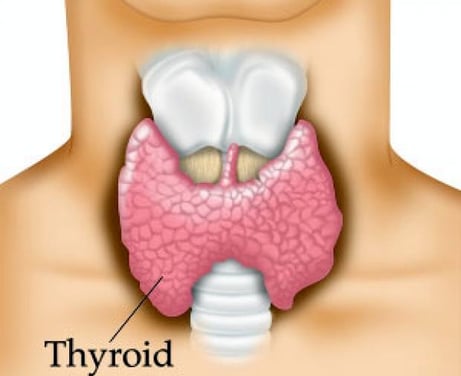Why thyroid get dysfunction?
Know the reason behind your thyroid dysfunction.
Suvigya Sahu (Nutritionist & Wellness Coach)
11/20/20232 min read


The thyroid is one of the body's organ and each organ in the body need some specific nutrients and mineral so that they can properly without any unnecessary stress. Overfeeding and underfeeding the nutrition and minerals for a long time can dysfunctional the organ's actual work and lead to some health conditions in that organ. Later, it will reflect on the body as a disorder.
In the case of thyroid, Dysfunction can result from various factors and it could be dysfunction from birth. If it is dysfunction since birth it is considered as the congenital thyroid dysfunction. If the thyroid gland is underactive. It will produce more TSH(Thyroid-stimulating hormone) and contribute to hypothyroidism the thyroid gland is hyperactive and produces more TSH (Thyroid-stimulating hormone) this condition leads to hyperthyroidism. lead and The causes can be broadly categorized types: hypothyroidism (underactive thyroid) and hyperthyroidism (overactive thyroid). Here are some common reasons behind thyroid dysfunction:
Cause of the thyroid dysfunction:
Autoimmune Thyroiditis: Autoimmune is the condition when our body cells attack the healthy organs of the body. It occurs when the immune system mistakenly attacks and damages the thyroid gland, leading to reduced thyroid hormone production.
Iodine Deficiency: eating a salt-restricted food or Insufficient iodine intake in food, Iodine is one of the essential components required for thyroid hormone production, which can lead to hypothyroidism. However, overconsumption of the iodine can lead to hyperthyroidism.
Thyroid Surgery or Radiation Treatment: Surgical removal of the thyroid gland due to nodules or cysts in the thyroid or radiation treatment for conditions like cancer can result in reduced thyroid function.
Certain Medications: Some medications, such as lithium (used to treat bipolar disorder), amiodarone (used for heart arrhythmias), and certain anti-thyroid medications, can interfere with thyroid function.
Pituitary Gland Dysfunction: The inability of the pituitary gland to produce enough thyroid-stimulating hormone (TSH) in the correct amount, can lead to thyroid gland dysfunction.
To detect thyroid dysfunction blood tests and diagnosis are required. If the dysfunction of the thyroid happens it will also lead to metabolism dysfunction and other symptoms in the body such as body temperature regulation, blood circulation, fatigue, cellular energy dysfunction, mood swings, hormone imbalance, etc.
A general physician could recommend the medication for the same but along with medication, the right nutrition and maintaining a healthy lifestyle is also mandatory.
Disclaimer: Everybody is unique and requires specific treatment approaches according to the body's immunity system. This knowledge and information is based on Scientific facts and research. If required contact the wellness expert or doctor.
